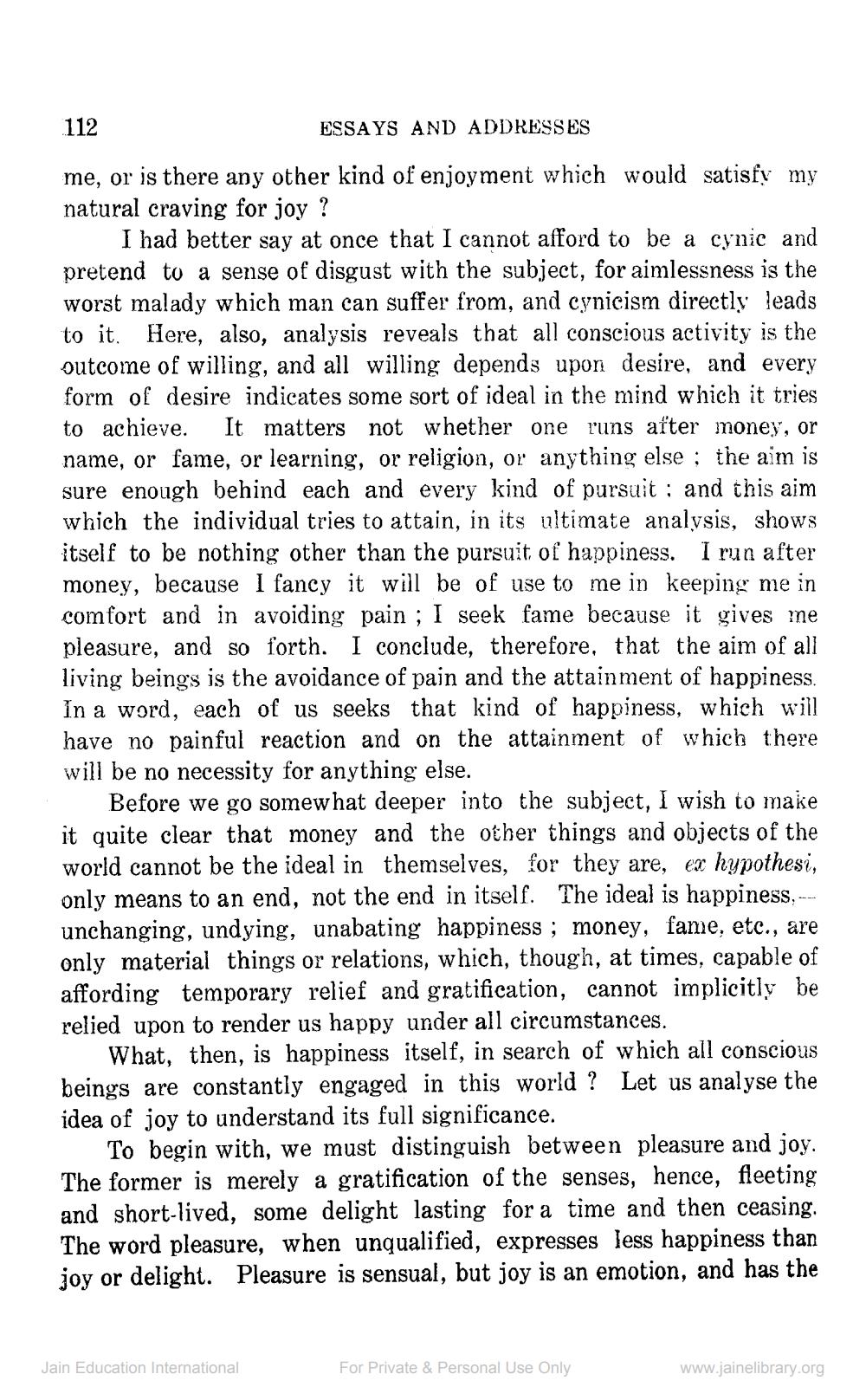________________
112
ESSAYS AND ADDRESSES
me, or is there any other kind of enjoyment which would satisfy my natural craving for joy?
I had better say at once that I cannot afford to be a cynic and pretend to a sense of disgust with the subject, for aimlessness is the worst malady which man can suffer from, and cynicism directly leads to it. Here, also, analysis reveals that all conscious activity is the outcome of willing, and all willing depends upon desire, and every form of desire indicates some sort of ideal in the mind which it tries to achieve. It matters not whether one runs after money, or name, or fame, or learning, or religion, or anything else; the aim is sure enough behind each and every kind of pursuit: and this aim which the individual tries to attain, in its ultimate analysis, shows itself to be nothing other than the pursuit of happiness. I run after money, because I fancy it will be of use to me in keeping me in comfort and in avoiding pain; I seek fame because it gives me pleasure, and so forth. I conclude, therefore, that the aim of all living beings is the avoidance of pain and the attainment of happiness. In a word, each of us seeks that kind of happiness, which will have no painful reaction and on the attainment of which there will be no necessity for anything else.
Before we go somewhat deeper into the subject, I wish to make it quite clear that money and the other things and objects of the world cannot be the ideal in themselves, for they are, ex hypothesi, only means to an end, not the end in itself. The ideal is happiness,-- unchanging, undying, unabating happiness; money, fame, etc., are only material things or relations, which, though, at times, capable of affording temporary relief and gratification, cannot implicitly be relied upon to render us happy under all circumstances.
What, then, is happiness itself, in search of which all conscious beings are constantly engaged in this world? Let us analyse the idea of joy to understand its full significance.
To begin with, we must distinguish between pleasure and joy. The former is merely a gratification of the senses, hence, fleeting and short-lived, some delight lasting for a time and then ceasing. The word pleasure, when unqualified, expresses less happiness than joy or delight. Pleasure is sensual, but joy is an emotion, and has the
Jain Education International
For Private & Personal Use Only
www.jainelibrary.org




